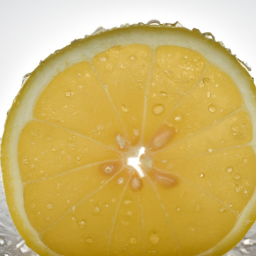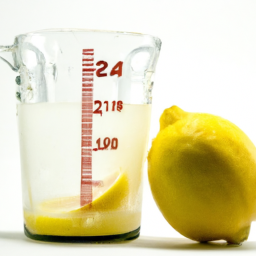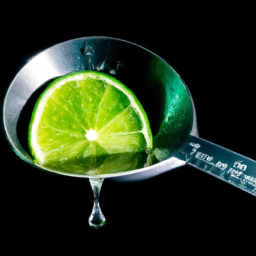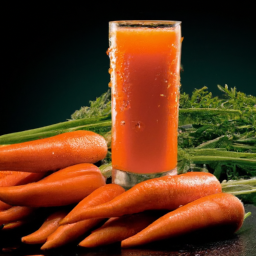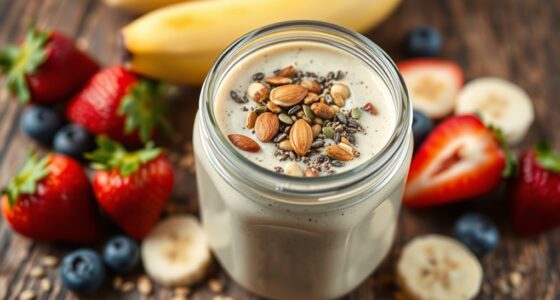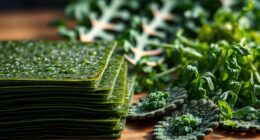I love adding the tangy flavor of fresh lemon juice to my drinks, salads, and dishes. But have you ever wondered how much juice is in a large lemon?
As someone who enjoys cooking and experimenting with new recipes, I have found that the amount of juice in a lemon can vary depending on several factors. In this article, I will explore the different lemon varieties, sizes, and ripeness levels that affect the amount of juice you can get from a lemon. I will also share tips and techniques for juicing lemons, tools that can help, and ideas for storing and using lemon juice.
First, it’s important to note that there are several types of lemons, each with their own characteristics. Some of the most common varieties include Eureka, Lisbon, Meyer, and Ponderosa. While each type can produce a different amount of juice, the size of the lemon can also make a big difference.
Larger lemons tend to have more juice than smaller ones, but there are also factors like ripeness and juicing techniques that can impact the yield. By understanding these factors, you can get the most juice out of your lemons and optimize your cooking and baking recipes.
Key Takeaways
- Larger lemons have more juice than smaller ones.
- A large lemon yields about 1/4 cup or 60 ml of juice.
- Cutting the lemon in half before juicing helps extract more juice.
- High-acid lemons yield more juice than low-acid ones.
Lemon Varieties
You can’t beat the tangy sweetness of a Meyer lemon, it’s the perfect addition to any dish! This variety of lemon is known for its unique flavor that’s a cross between a lemon and a mandarin orange. It’s less acidic than other lemon varieties, making it a popular choice for culinary uses.
Meyer lemons are often used in baking, cocktails, and savory dishes to add a bright and refreshing flavor. Their juice and zest are also popular ingredients in dressings, marinades, and sauces. While they may be slightly more expensive than other lemon varieties, their distinct flavor and versatility make them worth the investment.
Now, let’s talk about how the size of a lemon can affect the amount of juice it contains.
Lemon Size
When it comes to size, a bigger citrus fruit generally contains more of the tart flavor that we love. In terms of lemons, the average weight of a large lemon is around 5-6 ounces. However, the size can vary depending on growing conditions and the specific variety of lemon. For example, Eureka lemons tend to be larger than Meyer lemons.
In addition to size, acidity levels can also affect the flavor of a lemon. Larger lemons tend to have a higher acidity level, which can contribute to their tartness. However, acidity levels can also vary depending on growing conditions and ripeness.
When it comes to price comparison, larger lemons are often more expensive than smaller ones. Ultimately, the size and acidity of a lemon can greatly impact its flavor and culinary uses.
As we move on to the next section about lemon ripeness, it’s important to note that size and ripeness are not necessarily correlated. A smaller lemon can still be perfectly ripe and packed with flavor.
Lemon Ripeness
To fully savor the zesty taste of a fresh lemon, it’s important to know how to determine its ripeness. Measuring ripeness is easy – simply look for a lemon that has a bright yellow color and feels heavy for its size. A ripe lemon should also give slightly when gently squeezed.
The ideal picking time for lemons varies depending on the variety and the climate. In general, lemons are ready to be picked when they have reached their full size and their skin has turned completely yellow. However, if you want a more acidic flavor, you can wait until the lemon has started to develop a slight green tint on its skin. Knowing when to pick your lemons will ensure that you get the best possible flavor when using them for juicing or cooking.
When it comes to juicing techniques, there are a variety of methods you can use to extract the maximum amount of juice from your lemons.
Juicing Techniques
Get ready to experience the burst of citrus flavor as you watch the lemon being sliced and squeezed using various juicing techniques. When it comes to juicing a lemon, there are a few things to keep in mind to ensure that you get the most juice out of it.
First, choose the right juicing equipment. A handheld juicer or a citrus press can help you extract the maximum amount of juice from your lemon. Avoid using a blender as it won’t give you the same results.
Once you have the right equipment, it’s time to practice the best juicing practices. Start by rolling the lemon on a hard surface to loosen the pulp. Cut it in half and then use your juicing tool to extract the juice. Make sure you apply enough pressure to get all the juice out.
You can also try heating the lemon for a few seconds in the microwave, or soaking it in warm water before juicing to make it easier to extract the juice. With these techniques, you can maximize the amount of juice you get from your lemon.
Now, let’s move on to the next section about tools for juicing.
Tools for Juicing
You’ll be amazed at how much easier and efficient juicing can be when you have the right tools at your disposal. When it comes to juicing lemons, there are two main types of juicers: electric and manual. While electric juicers are faster, manual juicers are quieter and can be more affordable. Ultimately, the best type of juicer for lemons depends on your personal preferences and budget.
If you’re looking for some juicing hacks to get the most juice out of your lemon, there are a few tricks you can try. First, roll the lemon on a hard surface before cutting it in half to help break down the fibers and release more juice. Then, use a fork to poke the lemon and twist it as you juice to help extract every last drop. Finally, try microwaving the lemon for 10-15 seconds before juicing to help soften it up and make it easier to extract juice.
With these tips and the right tools, you’ll be able to get the most juice out of your lemons and create delicious, refreshing drinks.
When it comes to determining how much juice is in a large lemon, the yield can vary depending on the size and ripeness of the fruit. But with the right tools and techniques, you can maximize the amount of juice you extract and enjoy a refreshing glass of lemon juice whenever you like.
Yield of Juice
Maximizing the yield of your lemon can be a game-changer for your next refreshing drink. When it comes to juice extraction, there are a few things you can do to get the most out of your lemon.
First, always use a juicer or a reamer to extract the juice. Hand-squeezing may seem like a good idea, but it can actually waste a lot of juice. When you use a juicer or reamer, you’ll be able to get every last drop of juice out of your lemon.
Another thing to keep in mind is the acidity level of your lemon. The higher the acidity, the more juice you’ll be able to extract. So, choose lemons that are ripe and have a high acid content.
Finally, be sure to cut your lemon in half before juicing it. This will make it easier to extract the juice and will help ensure that you get the most out of your lemon.
When it comes to using lemon juice, there are countless possibilities. From adding it to your favorite recipes to using it as a natural cleaning agent, lemon juice is a versatile and useful ingredient.
Uses for Lemon Juice
Before we delve into the uses of lemon juice, let’s recap on the yield of juice from a large lemon. As we’ve learned in the previous subtopic, the amount of juice in a large lemon can vary, but on average, it can yield about 1/4 cup or 60 milliliters of juice. This information will come in handy when making lemon juice recipes or when you need to know how many lemons to purchase for a certain recipe.
Now, let’s talk about the many uses of lemon juice! Lemon juice is a versatile ingredient that can be used in a variety of dishes, from savory to sweet.
Here are five ways you can incorporate lemon juice into your cooking and beauty routine:
- Use it as a salad dressing: Mix lemon juice with olive oil, salt, and pepper for a fresh and tangy salad dressing.
- Add it to marinades: Lemon juice adds a bright and acidic flavor to marinades for meat, fish, or vegetables.
- Make lemonade: A classic summer drink, lemonade is easy to make with just lemon juice, sugar, and water.
- Use it for skin care: Lemon juice has natural astringent properties that can help tighten and brighten skin. Try mixing it with honey for a DIY face mask.
- Brighten up sauces and soups: A splash of lemon juice can add a pop of flavor to sauces and soups, brightening up the overall dish.
In addition to its culinary uses, lemon juice also has many benefits for skin care. Its high vitamin C content can help brighten and even out skin tone, while its natural acidity can help exfoliate and unclog pores.
Now that we know about the many uses of lemon juice, let’s talk about how to store it for future use.
Storing Lemon Juice
To ensure that your lemon juice stays fresh and flavorful, it’s important to store it properly. One of the best ways to preserve lemon juice is by freezing it. You can freeze freshly squeezed lemon juice in ice cube trays for easy use in small portions. Simply pour the juice into the tray, cover it with plastic wrap, and put it in the freezer. Once frozen, remove the cubes and store them in a freezer-safe container or bag. Frozen lemon juice can last up to six months in the freezer.
Another way to preserve lemon juice is by storing it in an airtight container in the refrigerator. Use a container specifically designed for food storage, like a Mason jar, to keep the juice fresh for longer. Don’t forget to label the container with the date you stored the juice to keep track of its freshness. If stored properly, lemon juice can last up to two weeks in the refrigerator.
It’s important to note that although lemon juice is a great addition to many recipes, sometimes a substitute is needed. Here are some alternatives to lemon juice that can be used in cooking or baking.
Lemon Juice Substitutes
You absolutely need to try out these amazing substitutes if you run out of lemon juice while cooking or baking. There are certain alternative ingredients that you can use as a replacement for lemon juice. Some of the best substitutes are apple cider vinegar, white wine vinegar, lime juice, orange juice, and tamarind paste. Each of these substitutes has their own unique flavor and acidity level, which can enhance the taste of your dish.
To help you choose the right substitute for your recipe, here’s a table that compares the acidity level, flavor profile, and health benefits of each alternative ingredient:
| Alternative Ingredient | Acidity Level | Flavor Profile | Health Benefits |
|---|---|---|---|
| Apple Cider Vinegar | High | Tart, fruity | Helps regulate blood sugar levels and lowers cholesterol |
| White Wine Vinegar | High | Mild, slightly sweet | Rich in antioxidants and may improve digestion |
| Lime Juice | Medium | Tangy, citrusy | High in vitamin C and may aid in weight loss |
| Orange Juice | Low | Sweet, fruity | Rich in vitamin C and may boost immune system |
| Tamarind Paste | High | Tangy, sour | Has anti-inflammatory properties and may improve digestion |
As you can see, these substitutes offer a range of health benefits in addition to their unique flavor profiles. So, if you ever run out of lemon juice, don’t fret. Simply refer to this table and experiment with these alternative ingredients to add a delicious and nutritious twist to your dish.
Frequently Asked Questions
Can lemon juice be used as a natural remedy for certain health conditions?
I’ve found that lemon juice has many health benefits, including aiding digestion and boosting immunity. It’s also a great ingredient in recipes for dressings, marinades, and desserts. Try adding it to your water or tea for an extra boost of flavor and nutrition.
How does the acidity level of lemon juice compare to other citrus fruits?
Comparing the acidity level of lemon juice to other citrus fruits is like comparing a flame to a spark. Lemon juice is more acidic than most, making it a great source of Vitamin C and other nutritional benefits.
Is it safe to drink lemon juice every day?
Drinking lemon juice every day can provide several health benefits, including improved digestion and boosted immunity. However, excessive intake can lead to tooth decay and acid reflux. The recommended intake is one lemon per day.
Can lemon juice be used as a cleaning agent?
Yes, lemon juice can be used as a cleaning agent and disinfectant due to its acidic properties. It’s effective in removing stains and grime from surfaces and has antibacterial properties. However, it’s important to dilute it with water to avoid damaging surfaces.
How long does it take for a lemon tree to produce fruit?
I’m afraid there’s no quick answer to how long it takes for a lemon tree to bear fruit. It depends on the variety, pruning techniques, and growing conditions. However, some lemon trees can produce fruit in as little as two years.
Conclusion
So, how much juice is in a large lemon? It depends. The variety of lemon, its size, and ripeness all play a role in determining how much juice can be extracted.
But with the right juicing techniques and tools, a large lemon can yield anywhere from 2-4 tablespoons of juice.
While this may not seem like a lot, it’s important to remember that lemon juice is a potent ingredient that can add a burst of flavor to a variety of dishes.
In fact, one interesting statistic is that the average American consumes about 2.5 lemons per year. This may not seem like a lot, but when you consider the vast number of lemon-based products on the market, it’s clear that lemons play a significant role in our diets and culinary traditions.
So, the next time you’re wondering how much juice is in a large lemon, remember that even a small amount can go a long way in enhancing the flavor of your favorite recipes.
Ilana has been a vegan for over 10 years. She originally made the switch for health reasons, but soon found herself becoming more and more passionate about the ethical and environmental implications of a vegan lifestyle. Ilana is the author of The Graceful Kitchen, a blog all about veganism. She loves to cook up delicious and nutritious vegan meals, and share her recipes with others who are interested in leading a cruelty-free life. Ilana is also a strong advocate for using whole foods as the foundation of a healthy diet, and believes that going vegan is one of the best ways to achieve this.
